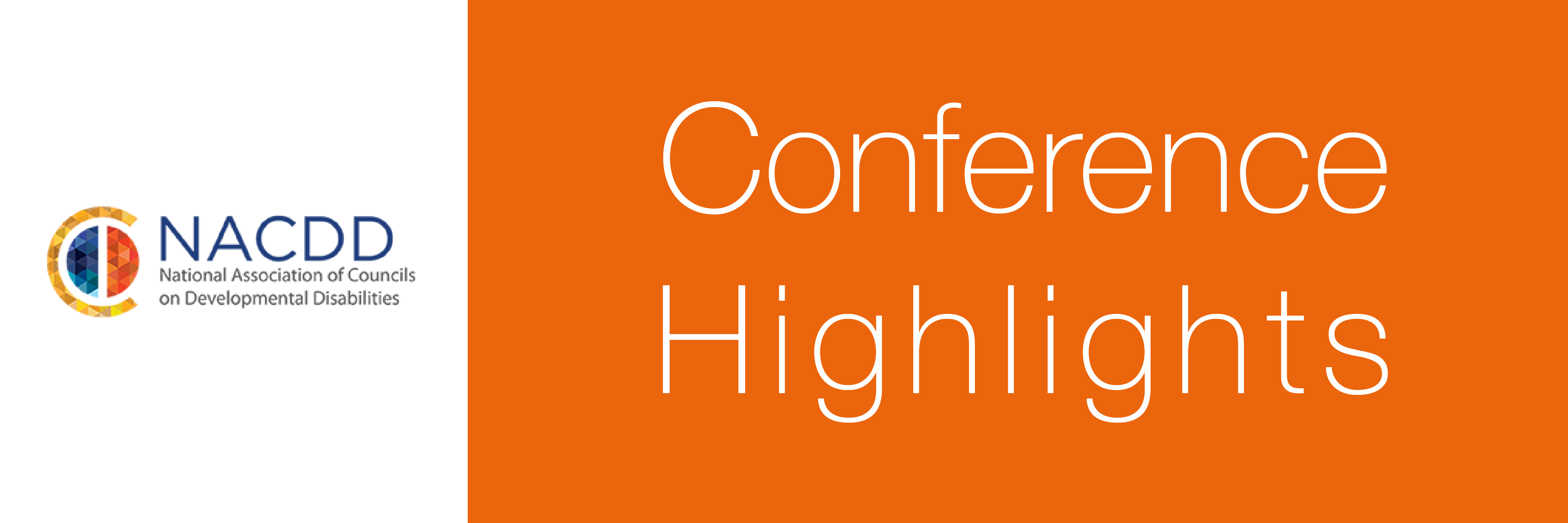
Each summer, the National Association of Councils on Developmental Disabilities (NACDD) hosts a conference so people and organizations from around the country can share the innovative programs and strategies they are implementing to support people with developmental disabilities (DD). NACDD is the national association for the 56 councils on DD across the U.S. and its territories, a group that includes TCDD.
At this year’s conference, two presentations covered Texas-based initiatives funded by TCDD that focus on reading skills and literary inclusion for people with DD. Dr. Kary Johnson of Literacy United and Dr. Celia Scott of the University of North Texas Health Science Center shared outcomes of the Reading For All project, which developed a reading program for people with DD in Tarrant County. Mary Mecham, a graduate of Texas Partners in Policymaking, gave a presentation on Disability Book Week, an initiative that encourages disability inclusion in literature and shares book lists and other information.
Literacy United Reading For All
Literacy United launched the Reading For All project in 2019 to provide consistent and comprehensive reading instruction to help participants learn and sustain reading skills. Here are a few takeaways from the conference presentation:
- Regular reading sessions are held with small groups at three adult day-activities centers in Fort Worth and Arlington. Sessions are held remotely if the day centers are closed.
- Participants have online access to reading materials based on individual reading abilities
- 97 people enrolled in the classes between September 2021 and February 2022. Of those participants, the average age was about 41 years old.
- Assessment surveys showed participants have increased their reading abilities, which also helped them be more self-sufficient and able to do more tasks for themselves.
Disability Book Week
Mecham created Disability Book Week for her Texas Partners in Policymaking capstone project. Held in April, the initiative invites people to become more inclusive with what they read and encourages people to read books that feature main characters with disabilities or are written by authors with disabilities. Here are a few takeaways from Mecham’s presentation:
- Research into disability representation in young adult or adult books is lacking.
- Through polling, Mecham found that intellectual disability is considered the least represented type of disability in literature but also the type of disability respondents wanted to see the most in books.
- More representation of characters with disabilities in books is needed. Literary inclusion raises awareness, elevates authors with disabilities, and introduces disability advocacy to new people and audiences.
- To counter stereotypes and ableism in books, we need to learn and teach how to analyze literature through a disability lens and think critically about the messages sent by stories.
- Inclusive literature can help the general public get a better sense of what it’s like to have a disability. Stories can create social change.
TCDD values literacy as fundamental to the independence of people with DD. A lack of proficiency in basic reading can become a barrier to active social participation and can diminish job options and other opportunities for community inclusion. Thank you to Dr. Kary Johnson, Dr. Celia Scott, and Mary Mecham for sharing their important and continued work with a national audience.
